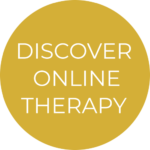Addiction Treatment
(Alcoholism - Drug addictions)
Overcoming an addiction is, without a doubt, one of the biggest challenges that people who are affected by this drama will ever have to face in their lives.
As a specialist in the treatment of drug addictions, my goal is to support these courageous people during their healing process and to support them during the most difficult times.
“ The curious paradox is that when I accept myself just as I am, then I can change ”
Carl Rogers
What is it about ?
The road to recovery is often long and not very easy… especially if you don’t have the necessary support.
In therapy, we try to make this difficult task as easy as possible, creating a range of resources that help the patient to continue with his goals.
The interventions vary according to the patient’s needs and personal moment in which they are:
For those patients who feel prepared to take the step towards abstinence, we will work on the motivations for change, we will prepare the ground for a possible withdrawal syndrome, we will strengthen the social ties that can be of help in this process and we will train the necessary tools that allow him or her to take that step and continue on the journey.
* In this phase I also do coaching for families or couples who will accompany my patient in the process.
“Taking the first step may not take you where you want to go, but it surely takes you out of where you are”
These are usually patients with high levels of sympathetic activation, a lot of energy and discomfort in the body and little capacity for containment. With them, we will work on impulse control, anger management, control of intrusive thoughts, meditation and relaxation techniques, restoration of healthy habits and schedules…
Any and every thing that can help them overcome this difficult phase and make them remember what it is like to feel good in their skin without needing to consume.
“The past cannot be modified, but we can modify its effect on the present”
These patients’ nervous system is usually somewhat calmer and there is usually a capacity in their systems to start working a little more in-depth.
Without neglecting the uniqueness of drug addiction, we will work on all the other aspects that need to be addressed: self-forgiveness and acceptance, self-image, self-worth and self-esteem, their way of relating to others, family, couple and peer relationships, personal trauma history…
“Before healing someone, ask them if they are willing to give up the things that made them sick” Socrates
In this phase, we continue to work on the aspects of their lives that need to be taken care of. Special importance is placed on relapse prevention, strengthening of social ties and healthy activities, self-esteem and a sense of self-improvement.
Actually, at this point, therapy with addicts does not differ much from therapy with patients who do not have this problem: we all have things to work on and improve in ourselves, in our lives and in our relationship to others. We all also have weaknesses to which we resort when we need consolation and escape routes that we use when a situation becomes unsustainable… In addictions we have the advantage of knowing very well what those weaknesses and escape routes are, so we can work on our improvement with those always in mind.
“Many times, addiction is just a symptom of a deeper trauma”
* In all cases, we work in parallel on family/couple/peer relationships, social connections, work, trainings or studies… any and every thing that can help my patient feel supported, understood and accepted in his or her environment.


What to expect from therapy ?
- Maintain abstinence or reduce and control consumption.
- Increase your ability to self-regulate (calm down).
- Get a greater awareness of your body and its real needs.
- Learn to control your impulses, detecting the early signals of activation.
- Increase you window of tolerance to feel both unpleasant and pleasant sensations.
- Restore or learn to establish healthy personal boundaries, in order to have a better connection with others and with yourself.
- Calm down anxiety and depressive symptoms, recognizing and accepting naturally occurring emotions.
- Learn to explore “healthy aggression” and defend yourself without falling into violence.
- Increase your self-esteem, self-worth and self-confidence.
- Establish secure emotional ties with loved ones and improve relationships in general.
- Learn to argue and communicate assertively.
- Increase your ability to tolerate frustration.
- Engage in hobbies and activities that promote a healthy lifestyle.
- Build up resilience to cope with stress, challenges and intense emotions.
- Improve your capacity for presence, empathy and compassion, towards others and towards yourself.








